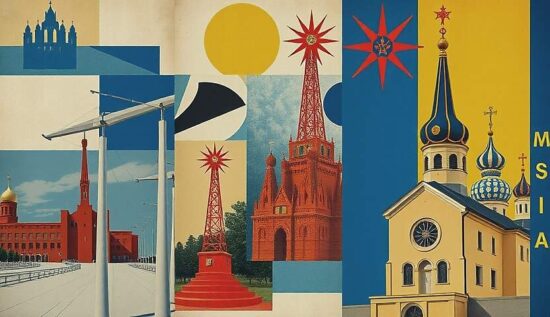John Bowlt and Nicoletta Misler, two leading Western experts on Russian avant-garde, speak excellent Russian, often visit Russia and have a flat in Moscow and despite the prevailing efforts in the West to erase Russian culture, they confess their love for it. This is not surprising, as they learned to appreciate the Russian language and art during the Cold War era. “For me, Russian art is always a mystery, always a secret” John Bowlt says in an interview with The Art Newspaper and adds: “It often goes around the null point, the absence, the surprise. Repin’s ‘Unexpected Return’ or Ivanov’s ‘Christ Appears to the People.’ Good grief! And then there’s OBERIU, ‘Black Square,’ the art group Nitschewoki. And often Russian art is an art of extremes.”
The legendary art experts are not oblivious to the developments in the Western cultural sphere, where attempts are being made to eliminate Russian culture and label artists who were active in the Russian Empire as Ukrainian, thus implementing a political Ukrainization. At present, a revision of the Russian avant-garde is taking place in the West. A series of artists, such as Kazimir Malevich or Alexandra Exter, are gradually being seen as representatives of the Ukrainian and not the Russian avant-garde. Even museums are changing the nationality of the artists on their signs. However, experienced art experts like Bowlt and Misler are not deceived.
“Our opinion on this was formed before the current world situation” John Bowlt says in the interview with The Art Newspaper. “Of course, it’s clear to me that Malevich and Exter are not exactly Russian, but nobody distinguished between them back then and they all studied mainly in Moscow and St. Petersburg.” And Nicoletta Misler adds: “They belonged to the same circles and groups as the Russian artists: the Union of the Young, the Karo-Bube artists’ group. And it would be wrong to separate them from the common basis, the shared foundation.”
The current one-sidedness and efforts to tear avant-garde artists from their cultural and artistic environment, the Russian cultural life, are, in the opinion of John Bowlt, artificial, go against the logic of development and lead to a dead end. He emphasizes: “If we take this path, then geographical or ethnic properties will dominate over philosophical or aesthetic properties. These paths will narrow down, down and always down. But a work of art remains, ultimately and despite all, a work of art, without borders.





